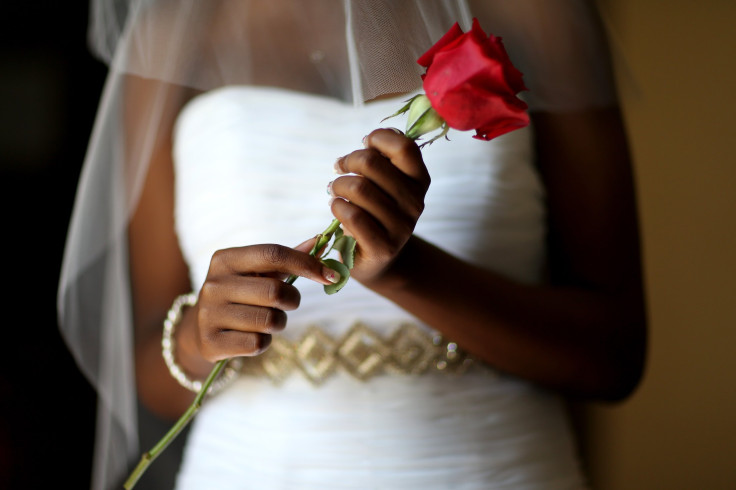What Is 'Sologamy'? People Are Now Getting Married To Themselves

If you can’t find the perfect partner in someone else, why wait for the ring when you can get hitched to yourself? That, at least in part, seems to be the thought process behind “sologamy,” or the act of marrying oneself.
People — particularly women — are participating in the marriage trend that’s billed as a practice in self-love, as one woman described it. And it’s turning into an industry, too. Companies dedicated to curating self-marriage walks down the aisle are gaining traction among a subset of people who’d rather forego waiting for Mr. or Ms. Right to come along.
Erika Anderson, whose own self-marriage ceremony last spring helped the trend go viral, said it’s about more than just the dress. “I would describe it as women saying yes to themselves,” 37-year-old Anderson told CBS last week. “It means that we are enough, even if we are not partnered with someone else."
Read: Drake And Rihanna's Open Relationship: Do Polygamous Arrangements Actually Work?
Anderson told CBS she grew frustrated with being asked why she hadn’t settled down with anyone and decided to take matters into her own hands. With friends and family as her witnesses, Anderson donned a white gown and bouquet and walked herself down the proverbial aisle to commit wholly to herself.
So how does one go about sologamy? Small businesses like IMarriedMyself.com from husband-and-wife team Jeffrey Levin and Bonnie Powers makes the process relatively streamlined. The site's self-wedding kits come complete with a wedding band, vows and daily affirmation cards — all for a little over $200.
“A roadmap to positivity, our I Married Me kit has all you need to create your own ceremony, including a self-wedding ring, vows and daily affirmation cards,” reads its website. “A self-wedding is a symbolic ceremony — about reconnecting and staying connected with you. Wear the ring to remind you every day to LOVE YOURSELF.”
As for the legal element? You shouldn’t expect to be cutting yourself any additional tax breaks; self-marriage is not legally recognized. Rather, it’s a symbolic practice. And in spite of it becoming a relatively new trend among the millennial demographic, sologamy is in practice nothing new.
“The appeal of sologamy is in creating a formal process to remain single and celebrate it,” Jonathan Bennett, counselor and co-founder of The Popular Man, told International Business Times by email. “ Creating a formal procedure to avoid marriage isn’t a new phenomenon. Vows of celibacy have been common in religious contexts for thousands of years. In a way, sologamy is a modern, secular version of it. Except instead of a symbolic marriage to an institution or deity, the person is making a commitment to him- or herself.”
Still, the question remains: Is sologamy the next big thing in commitment? While he says he understands the appeal, Bennett isn’t convinced.
“Formalizing the single life through marriage to oneself is rare,” he told IBT. “I don’t see it catching on. Humans, hardwired by evolution, possess a basic need for companionship and completely writing off romantic relationships won’t be appealing to most men and women.”
© Copyright IBTimes 2024. All rights reserved.











